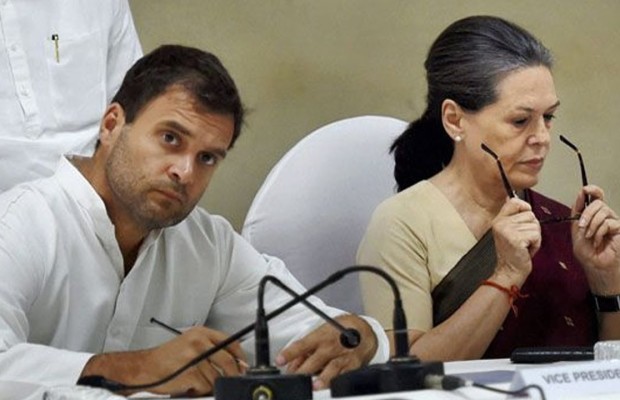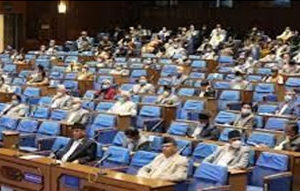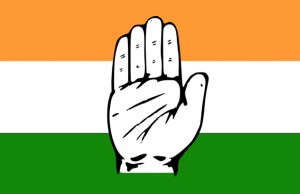NEED FOR CONFLICT MANAGEMENT IN CONGRESS

I have been a keen watcher of Congress politics for the last 35 years. However, I have no hesitation in saying that the behaviour of some of its leaders for more than a year should be a cause for concern. Prime Minister Narendra Modi has lost his sheen and yet the Congress party is unable to capitalise on it. Recent well-thought out verbal outbursts and actions by some of the old and new guards cannot be dismissed or condoned that easily. Should a political party keep on overlooking the fact that its deputy leader in the lower house of Parliament refuses to attend sessions and addresses the central leadership through the media?
Is it all right that a president of Congress party’s state unit is subject to abuse by supporters of a former chief minister from the same state whenever a national public rally is organised? Should behaviour such as this be legitimised by calling it the “enthusiasm of the workers”? Is it not the responsibility of all leaders and workers of a political outfit to respect the person occupying the position because he or she has been chosen by the leadership, after giving due consideration to all the details?
What should be done if the president of a regional committee of the Congress party tells the media that influential seniors are creating hurdles in the way of young leaders, and they don’t want to groom them? Should it not be made compulsory for a young president of a regional committee or a state unit to ensure that the very principle of inclusiveness is implemented in its basic spirit? Can a party like Congress turn its eyes away from the fact that one of its state, which till now has no presence of a third force, is facing a situation where ‘some disgruntled elements’ have announced the formation of a ‘parallel Congress’ after the recent reshuffle in the organisational setup?
Political parties are crucial elements in the democratic process. In a heterogeneous country like ours, factionalism within political parties will always remain. With different sections of people having aspirations that arise out of their social backgrounds, economic situations and political compulsions, any party including the Congress is bound to face the problems of internal conflict. When the political process is not in a position to articulate legitimate demands, conflicts emerge. There is a democratic space for the resolution of such grievances in most political parties, but the Congress has overlooked these in the past few years as far as the matters of internal conflict management are concerned. I strongly feel that allowing the tendency of ‘either my way or highway’ among the lieutenants, whether they are young or old, has cost the Congress party a lot in last few years and it could not harvest the political crop, in spite of Sonia Gandhi and Rahul Gandhi’s tireless efforts.
It is necessary for the interest of conflict resolution that an effective way of institutionalising this is found. The time has come when an enforceable code of conduct, which should define the forms of dissent permissible, is adopted. Instead of Disciplinary Action Committee, let the Congress formulate the Conflict Resolution Committee with its units in every state. The perspective should be that our Constitution has created space to resolve conflicts. Why can’t then it be adopted to manage conflicts between factions within a political party? Most problems can always be solved through the process of dialogue in the presence of a neutral and fairly experienced senior leader. A trust deficit in the neutrality of negotiator has been the cause of growing factionalism in the Congress party in the last few years. That is why Congress lost Andhra Pradesh, and that is why problems in Assam began.
Democracy as a system of political decision-making is in many ways a system of conflict management. When it comes to inner-party democracy what any political organisation requires is a carefully crafted plan that generates its own momentum. Congress requires a long process of confidence building among its leaders and between the workers and their leaders. No situation should be allowed to reach a point of no return. There is a difference between competition and conflict. Encouraging competition is good, but ignoring conflicts could be disastrous. The Congress, at the moment, cannot afford to ignore the signs and stages of conflicts. Causes or sources of organisational conflict can be many and varied, but the party leadership has to keep a sharp eye on disputes of rights and disputes of interests. Inadequate organisational structure, poor communication, lack of teamwork and absence of clarity in roles and responsibilities are the areas to be taken care of at the earliest.
The liberty of a democracy is not safe if the growth of private power is tolerated to a point where it becomes stronger than the democratic state itself. The same is true for any political organisations. Ownership of political, regional political units by an individual, by a group, or any controlling private power must be discouraged at all costs. Factional and individual conflicts must be managed by all means. Congress will be failing in its duties to launch a war against fascist forces if it does not wake
up now.




You must be logged in to post a comment Login